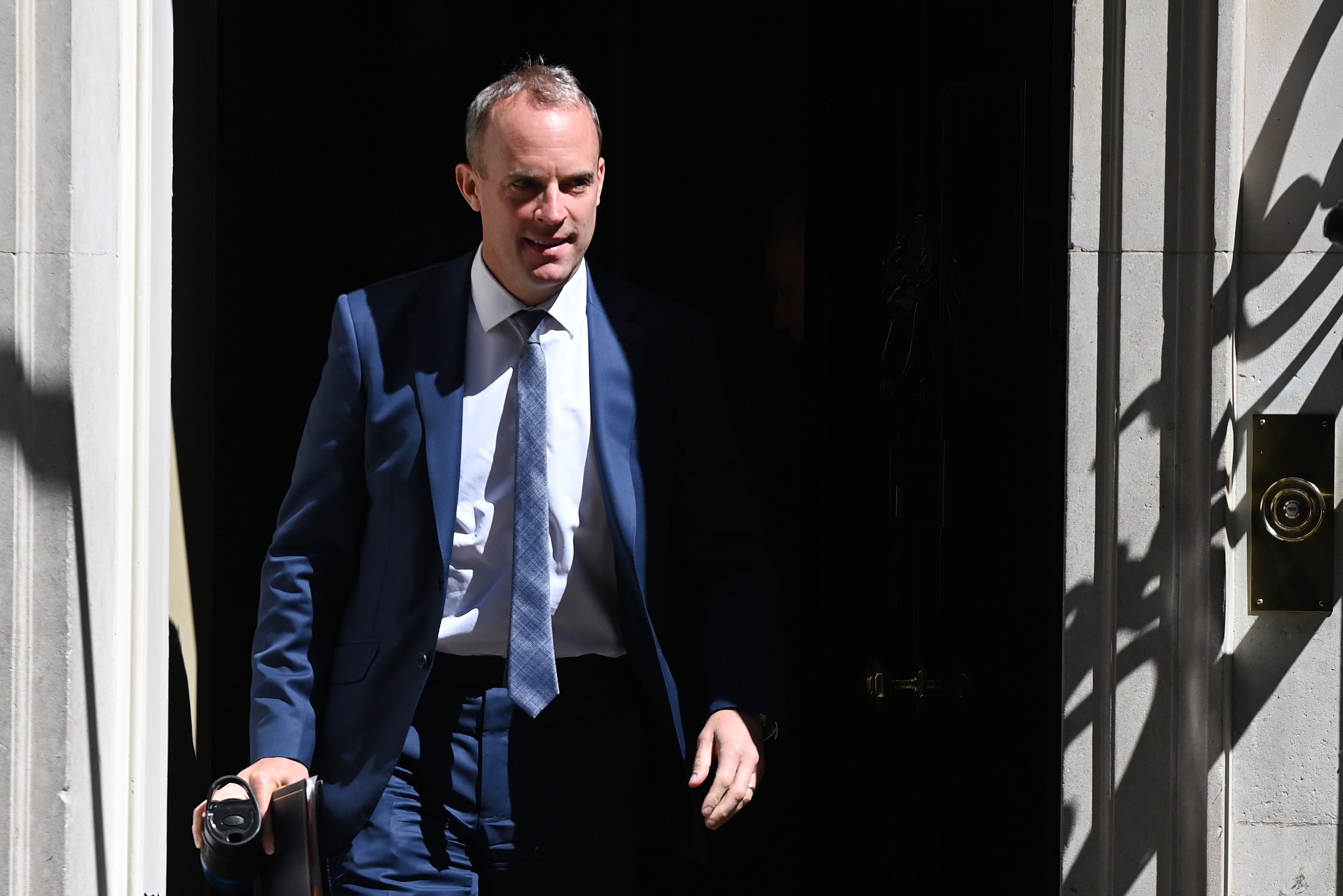Government cannot allow ‘militant’ unions to ‘win argument’, Dominic Raab says
Deputy PM says government ‘cannot relent’ after first day of industrial action

Your support helps us to tell the story
From reproductive rights to climate change to Big Tech, The Independent is on the ground when the story is developing. Whether it's investigating the financials of Elon Musk's pro-Trump PAC or producing our latest documentary, 'The A Word', which shines a light on the American women fighting for reproductive rights, we know how important it is to parse out the facts from the messaging.
At such a critical moment in US history, we need reporters on the ground. Your donation allows us to keep sending journalists to speak to both sides of the story.
The Independent is trusted by Americans across the entire political spectrum. And unlike many other quality news outlets, we choose not to lock Americans out of our reporting and analysis with paywalls. We believe quality journalism should be available to everyone, paid for by those who can afford it.
Your support makes all the difference.Dominic Raab has said the government cannot “relent” and allow striking rail workers to “win” the argument amid the biggest industrial action on the network in three decades.
Risking a fresh clash, the deputy prime minister also described the actions of the country’s largest rail union, RMT, as “militant” — just minutes after insisting the government did not want the dispute to become “politicised”.
As inflation hit a fresh 40 year high, the cabinet minister said it showed the need to take a “firm line” with the union, telling Sky News there was a risk of a “vicious cycle” of rising wages pushing inflation even higher.
His comments came as talks between Network Rail and other train companies prepare to resume negotiations with RMT in attempt to break the deadlock after the first of three days of industrial action.
Mr Raab said he understood unions “feel their job is to protect their workers”, before describing the strike action as “counterproductive” and claimed it was for Network Rail to deal with the union, rather than ministers.
“This risks being politicised, actually, the successive approach of governments is to have Network Rail dealing with the technical aspects of that in the room and I think that would hopefully increase the chances of a depoliticised approach,” he said.
But asked how long the government would let the strike go on, Mr Raab replied: “We can’t allow, I’m afraid, the unions in this very militant way they’ve proceeded, to win this argument because it will only hurt the poorest in society.”
Pressed on his use of the word “militant”, Mr Raab said millions were being disrupted, with blue collar workers, including cleaners and electricians, suffering the “most”.
“If we want to get inflation down quicker we cannot relent,” the justice secretary added when quizzed on warnings of a summer of discontent facing the country.
RMT general secretary Mick Lynch said the turnout at picket lines on Tuesday was “fantastic” and had exceeded expectations in the union’s campaign for job security, defending conditions and a decent pay rise.
“Our members will continue the campaign and have shown outstanding unity in the pursuit of a settlement to this dispute,” he said.
“RMT members are leading the way for all workers in this country who are sick and tired of having their pay and conditions slashed by a mixture of big business profits and Government policy.
“Now is the time to stand up and fight for every single railway worker in this dispute that we will win.”
Speaking to The Independent on Tuesday, Frances O’Grady, the general secretary of the Trade Union Congress said that the government’s approach will cause “widespread hardship” among working families and damage the economy by suppressing consumer demand.
She added: “Britain is in the middle of the worst cost of living crisis in generations. The last thing working families need right now is a race to the bottom on pay.
“Holding down wages in the public sector – to keep pay awards lower in the private sector – will cause widespread hardship. And it will suck demand out of our economy by depressing consumer spending.
“It’s also jarring to hear the prime minister call for nurses, teachers and other public sector key workers to tighten the belts when he’s looking to tear up the limits on City bosses’ pay.”


Join our commenting forum
Join thought-provoking conversations, follow other Independent readers and see their replies
Comments